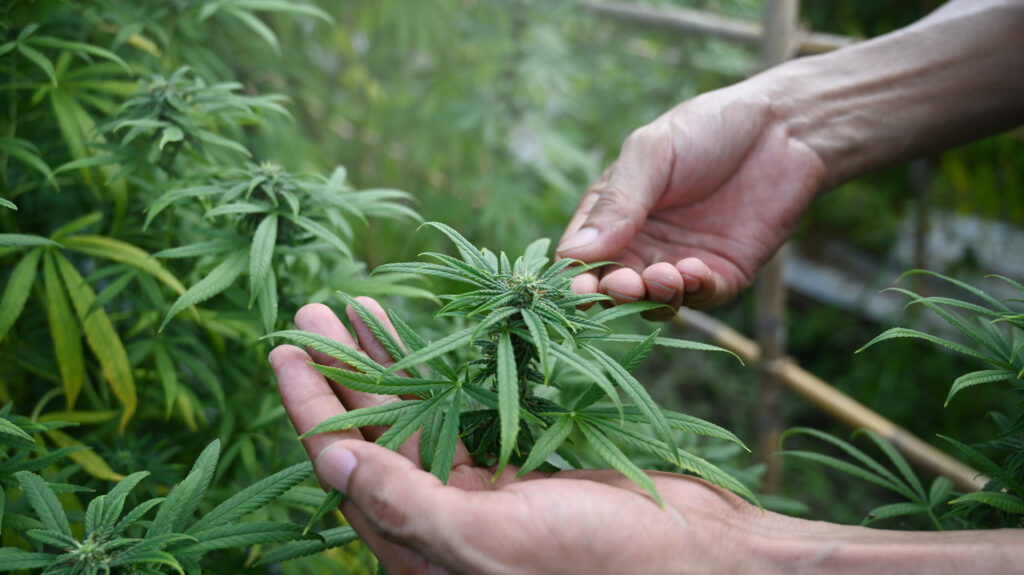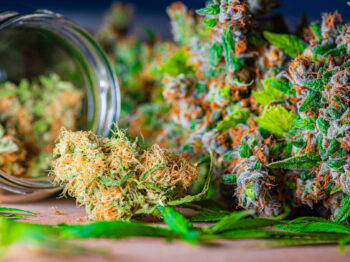Table of Contents
CBD, short for cannabidiol, has gained significant attention in recent years for its potential therapeutic benefits and non-intoxicating properties. As one of over a hundred cannabinoids found in the cannabis plant, CBD offers a diverse range of applications and has sparked a growing interest among consumers seeking natural remedies for various ailments. This article will explore CBD, its differences from THC (tetrahydrocannabinol), and its potential benefits.

What is Cannabidiol (CBD)?
CBD is a naturally occurring compound found in the cannabis plant, specifically in hemp and marijuana varieties. Unlike THC, which is known for its psychoactive effects, CBD does not produce a "high" sensation when consumed. Instead, it interacts with the body's endocannabinoid system, a complex network of receptors that regulate various physiological processes.
CBD is typically extracted from the cannabis plant in the form of CBD oil, which can then be incorporated into a wide range of products, including oils, tinctures, capsules, edibles, topicals, and more. These products offer consumers various consumption methods, allowing for flexibility and customization based on individual preferences and needs.
Differences Between CBD and THC
While CBD and THC are both cannabinoids derived from the cannabis plant, they have distinct differences in their chemical composition, effects, and legal status. Here are some key contrasts between CBD and THC:
- Psychoactive Effects: Perhaps the most significant difference between CBD and THC is their psychoactive effects. THC is the primary psychoactive compound in cannabis, responsible for the euphoric "high" associated with marijuana consumption. In contrast, CBD is non-intoxicating and does not produce a psychoactive high, making it a more appealing option for those seeking relief without the cognitive impairment associated with THC.
- Legal Status: Due to its psychoactive properties, THC is subject to strict regulation and remains illegal at the federal level in many countries. In contrast, CBD derived from hemp containing less than 0.3% THC is legal under federal law in the United States and many other countries. This legal distinction has paved the way for the widespread availability of CBD products and increased research into its potential benefits.
- Medical Applications: Both CBD and THC have been studied for their potential medical applications, but they offer different therapeutic effects. THC is known for its analgesic, anti-inflammatory, and appetite-stimulating properties, making it practical for managing pain, nausea, and appetite loss in certain medical conditions. CBD, on the other hand, is valued for its anxiolytic, anti-inflammatory, and neuroprotective effects, making it beneficial for conditions such as anxiety, inflammation, epilepsy, and more. CBD is well-tolerated and has a favorable safety profile, making it suitable for long-term use in various populations.
- Side Effects: While both CBD and THC are generally well-tolerated, they can produce different side effects at high doses or in susceptible individuals. THC may cause temporary cognitive impairment, paranoia, anxiety, and increased heart rate, particularly in individuals prone to anxiety or psychosis. In contrast, CBD is considered to have a better side effect profile, with rare reports of mild adverse effects such as fatigue, diarrhea, and changes in appetite or weight.
Potential Benefits of CBD
CBD has garnered attention for its potential therapeutic benefits across a wide range of conditions. Some of the potential benefits of CBD include:
- Anxiety Relief: CBD has shown promise in reducing symptoms of anxiety and stress, making it a popular choice for those seeking natural alternatives to traditional anxiety medications.
- Pain Management: CBD possesses analgesic and anti-inflammatory properties, making it effective for managing various types of pain, including chronic pain, neuropathic pain, and inflammatory pain conditions.
- Epilepsy Treatment: CBD has been approved by the FDA as a treatment for certain forms of epilepsy, such as Dravet syndrome and Lennox-Gastaut syndrome, due to its anticonvulsant effects.
- Neuroprotection: CBD has neuroprotective properties that may help protect against neurodegenerative diseases such as Alzheimer's disease, Parkinson's disease, and multiple sclerosis.
Conclusion
CBD is a non-intoxicating cannabinoid with diverse therapeutic potential and a favorable safety profile. While it shares similarities with THC, CBD offers unique effects and benefits that make it a valuable addition to the wellness and medical landscape. By understanding the differences between CBD and THC and exploring the potential benefits of CBD, consumers can make informed decisions about incorporating CBD into their daily routines.




